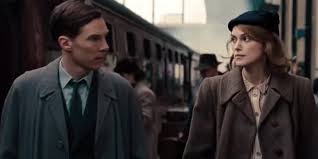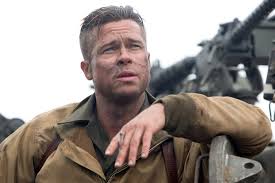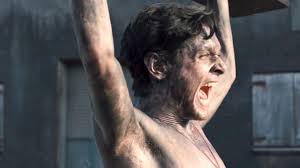I’ve been waiting to write in tandem about the three major WWII releases this season. Each offers a bit of nostalgia alongside something fresh, and one works better for me than the others.
Overall, The Imitation Game is both the most anticipated and the most satisfying of the three depictions of WWII. Of course, this isn’t your typical war movie. Instead, this film tells the story of real-life mathematician Alan Turing who led the English team that cracked the enigma code and won the war.
His personal story is as tragic as his contribution to the war effort is triumphant if mostly unheralded. During his lifetime, homosexual activity was criminalized and he was persecuted and prosecuted, and the story of how he, essentially, won the war was kept secret for security reasons.
The idea of using flashbacks and flashforwards around the Bletchley Park project to fill in the gaps of his character’s backstory is a good one, but at times, the attempts feel a little too spot on or a little too clumsy.
While I am no expert on Turing’s life, written accounts suggest there is more nuance and depth to the man and his lived experiences than turn up on the screen. Still, in terms of having a great story to work with, it’s hard to top this one, and Benedict Cumberbatch brings what he can from his considerable skillset to the portrayal of Turing.
Fury was a bit of a surprise for me on two levels: there were several sequences that were completely engaging and illuminating, and the film takes a story about the “greatest generation” to a new generation by using visuals the evoke certain popular video games.
Thanks to my friend Laura for tipping me off about the video game aesthetics. I wrestled with the imagery a bit when watching the movie, but don’t know much about video games (her son is a gamer). My students confirmed the connection when we were talking in class last week.
The general narrative is not new. There is a battle-weary sergeant (Brad Pitt) leading a tank crew deeply bonded by experience (Shia LaBeouf, Michael Peña, Jon Bernthal), and a new guy (Logan Lerman), who becomes the emotional center of the film as he comes of age amid harrowing circumstances.
Three sequences that bring the sergeant and the newbie together as the latter “comes of age” are appropriately intense, but the rest of the film is a bit of a blur. Maybe that’s the way war is, but it is something we have seen before.
My least favorite among the three films is Unbroken. The tedium of internment is, no doubt, repetitive, but that is not a recipe for good cinema. I was hopeful that director Angelina Jolie would bring a fresh perspective to the story and excited to see Jack O’Connell as Louis Zamperini after his explosive performance in Starred Up, but left the theater feeling this film is a bit less than the sum of its parts. Not bad, mind you, but not as extraordinatry as Zamperini’s own story.



I tried to say this myself, but your words sum it up perfectly:
“The tedium of internment is, no doubt, repetitive, but that is not a recipe for good cinema.”
It’s a shame because I was really enjoying it up until that point.
Thank you, Chad!